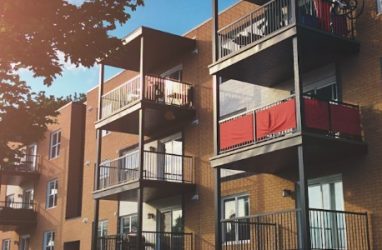How Do City Zoning Ordinances Affect Properties?
A city must have a blueprint to locate streets, parks and business and residential areas. Zoning is the city’s tool that allows various land uses, promotes orderly growth and protects existing property owners by ensuring a convenient, attractive community.
The authority to zone property comes from state law. The city zones property within the city limits into residential, commercial, industrial and special-use districts.
Specific zoning categories are detailed in the city’s zoning ordinance. Up-to-date maps and current information on zoning classifications are available to the public at City Hall or often times online.
City Council, along with several city boards and commissions composed of citizen volunteers, make decisions on how to zone property and on other zoning matters.
Find Government Finance Jobs
Find Government Finance Jobs on GovtJobs.com today!
How Service is Provided:
Zoning property is a time-consuming process which is usually begun by the property owners. The zoning process begins when a piece of undeveloped property is planned for development by the owner. The first stop in this development process is the Planning Commission.
The Planning Commission
The Planning Commission is composed of nine members appointed by City Council and is responsible for formulating, adopting and recommending to the City Council a comprehensive plan for the orderly growth and development of the city and its adjacent property. It also regularly reviews the effectiveness of the zoning ordinance in accomplishing the objectives of the city’s plan.
All proposals to change zoning on any parcel of land, initial zoning or amendments to the zoning ordinance must be considered first by the Zoning Commission, which will study the merits of each proposal and hear testimony from the property owners, citizens and staff.
The Zoning Commission
Zoning Commission members act as advisors to the City Council on zoning issues. The commission conducts extensive hearings, makes decisions based on the hearings and forwards its recommendations to either approve or deny requests to City Council, which has the final authority to approve or deny. However, council uses the Zoning Commission’s recommendations in its decision process.
Written notices of the Zoning Commission’s recommendations are sent to all owners of property located within X feet of any property for which a zoning change has been requested. A public hearing is held to ensure every citizen has an opportunity to voice an opinion about the proposed zoning change.
At the hearing, proponents and opponents are each allowed to testify and have time to make a rebuttal. If the Zoning Commission recommends that a zoning change request be denied, City Council must vote to uphold the recommendation or not. A written appeal of denial must be filed with the secretary of the commission.
When the council considers a denial appeal it has the following options:
1. Accept denial as recommended;
2. Return the case to the Zoning Commission for rehearing;
3. Set a special hearing for the case to be heard by the City Council; or
4. Deny the case without prejudice – an action which means an applicant does not have to wait before submitting another request for a zoning change on the same property.
The Board of Adjustment
The Board of Adjustment is composed of appointed citizens and has the power to hear and decide cases which interpret provisions of the zoning ordinance. This board sits as a judicial body – a citizen court in zoning matters. Unlike the Zoning Commission, this board is not a recommending body. Its decisions are final, subject only to review by the courts.
The Board of Adjustment decides on applications for special exceptions of land use and authorizes variances of land use or development authorized under the zoning ordinance.
The board has three powers:
1) To render an interpretation of the city zoning ordinance when someone alleges that there is error in any order, requirement, decision or determination made by a city official who administers the ordinance;
2) To decide whether to approve or deny applications for a special exception to normal zoning rules when such use or development is specifically authorized in. the zoning ordinance; and
3) To authorize requests for variance from the zoning ordinance when it is not contrary to the public interest.
Frequently Asked Questions:
Q: Who may request a change in zoning?
A: An application for a change in zoning may be requested by the owner of the property involved, his attorney, or by a person with written authority to act on the owner’s behalf. An application also may be filed by the city’s Department of Development upon recommendation of the Zoning Commission, Plan Commission, Board of Adjustment or the City Council.
Q: What is the fee for filing a zoning request?
A: Each proposal requires a filing fee.
Q: A sign on property in my neighborhood says it will be rezoned. How can I find out what is planned for the property?
A: Call the city’s Development Department to learn the facts about the rezoning
Q: Can residents who oppose a rezoning in their area file an appeal when the Zoning Commission has granted the owner’s request?
A: Yes, but it’s not necessary to file an appeal with the commission because a second public hearing will be held with the City Council. Residents, therefore, have another opportunity to present their objections to the rezoning a second time.
Q: What can be done If I oppose the rezoning of property In my neighborhood?
A: First, talk to other residents to see if they oppose the rezoning. If they do, schedule a meeting, choose a leader and assign responsibilities. Let the applicant know the residents concerns and seek a compromise. Applicants know they need citizen support to be successful and may agree to change plans for use of the property. Before the public hearing, contact the Development Department to learn the rules that govern procedures and organize a presentation–be sure to encourage attendance and take a petition with as many signatures of area residents as possible.
Q: What compromises can a citizen seek with a developer?
A: Citizens can request that developers include buffers in their plans to separate their planned development with already existing development. They also can request height limits, signage concessions and limits on uses.
Q: How does the Zoning Commission prepare for a hearing to rezone property so that the new zone will be compatible with the area around it?
A: Before the commission meets, the members are taken on a tour of the area to determine if rezoning would be compatible to the area.
Q: What kind of presentation should residents make at public hearings?
A: The facts of the case should be presented unemotionally. Use photos and document your findings (accident reports, approved plans, traffic counts, flood insurance claims, school enrollment, etc.). Respect the applicant. Don’t criticize, threaten, patronize, or offend either the applicant or the decision makers.






